Fish Oil: Not Just Beneficial for Cardiovascular Health
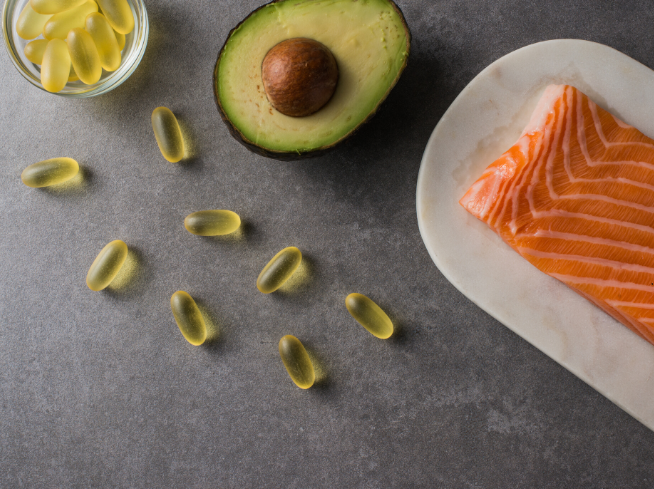
Fish oil can help cardiovascular disease, diabetes, anxiety, and several other health issues when used right. You need to get a good quality fish oil supplement from a source you trust to get the best results!
Let’s talk a little bit deeper into what fish oil is and precisely what it can do for you.
What is Fish Oil Made Of?
Fish oil is a broad term used to describe various omega-3 fatty acids and natural oils extracted from different sea creatures. Many times, fish oil comes from little sea creatures called krill, shrimp-like creatures best known for being eaten by the largest mammals whales. Fish oil can also be from sardines, mackerel, Herring, anchovies, tuna, salmon, and numerous other sea creatures. It is not acceptable to use larger mammals such as whales or dolphins.
Approximately 30% of the fats extracted from fish are pure omega-3 based. Plus, many of the oils contain higher amounts of vitamin A and vitamin D, which are often deficient in many people’s diets.
The primary omega-3 fatty acids contained in fish oils are eicosapentaenoic acid (EPA) and docosahexaenoic acid (DHA). Both of these are precursors to the eicosanoids hormones that are known to reduce inflammation and may help improve high triglycerides.
There’s no one standard way to label fish oil so that you may see various names such as fish oil, krill oil, omega threes, and oils even listed out as EPA and DHA. The source of the oils will tell you whether it’s krill oil versus fish oil or if it's been a chemically derived supplement.
You do want to be careful with fish oil supplements that state they contain alpha-linolenic acid (ALA) because that specific acid is plant-based. Although it can be added to fish oil, it is not a natural part of fish oil.
No matter where it comes from, fish oil is healthy.
Fish Oil Benefits
Fish oil does wonders for depression and heart disease. Read more below to find out how this works.
Many parents see significant improvements in children when they have their children take fish oil supplements.When a child's brain is developing, it requires a higher amount of omega-3 fatty acids to form proper neural connections. Children with omega-3 fatty acids deficiency show signs of ADHD, hyperactivity, aggression, and other behavioral problems.
Several studies show the children taking fish oil supplements show improvement in the perceived problems with learning disabilities.
The same is true much later in life. People who regularly eat fish show a slower decline in memory and recall functions later in life. Although supplementation has not been studied long-term for a decrease in brain function, some very small studies and anecdotal evidence shows that fish oil does help older individuals retain memory function and may slow cognitive decline.

Other studies show that fish oil helps:
- Weight loss
- Eye health
- Inflammation
- Irritable bowel disease
- Skin health
- Infant development
- Liver disease
- Asthma
- Allergies
- Bone density
As you can see, fish oil helps many different conditions and helps keep a person healthy.
Fish Oil Side Effects
Of course, it's not all benefits. There are some mild side effects, although for most people, they are mild if you experience any at all.
If you are allergic to fish or shellfish, you should use extreme caution taking a fish oil supplement. Most manufacturers are careful to remove many of the allergens causing proteins from their supply lines, but you may still have an allergic reaction.
Other people experience the side effects of bad breath, gas, heartburn, nausea, and oily stool. In extreme cases, some people may experience a rash or nosebleeds when taking a fish oil supplement.
Many of the side effects can be reduced by lowering the dosage of your supplements and taking it less often. As your body gets used to the supplements, you are better able to handle the side effects and can increase the dosage to an optimal level.
Some people react to the coating on the supplement, leftover protein from the fish, and the oil carrier. The actual omega-3 molecules do not have side effects, as they are an essential and necessary part of our biology.
It's also tough to overdose on fish oil supplements. Some people experience nausea or diarrhea when taking too much, as the body gets rid of excess oils and fats. We do not recommend going over the optimal daily amount.
You should research your supplement to determine purity content. Fish is considered a food to use with caution because of arsenic and mercury contamination from pollution. Your supplement should have purification to remove these contaminants, but you need to make sure.
Fish Oil for Your Heart – Reducing Heart Disease, High Blood Pressure, and Cholesterol
Various studies show people who eat more fish tend to have lower heart problems. This includes cholesterol levels, triglycerides, blood pressure, arterial plaque, and arrhythmias. The mechanism and the various fats involved were not recognized as the benefit until recently.
Fish oil tends to raise good cholesterol levels, and HDL cholesterol helps clear our blood of extra fats and cholesterol that are unneeded. It may not reduce the LDL cholesterol, but with omega-3 supplements and a diet rich in vegetables, both of these numbers move towards an optimal range.
Various other studies show that fish oil, even in small doses, can help lower your blood pressure and plaque formation, and it can help reduce the triglycerides in your blood between 15 and 30%. High triglyceride levels are a risk factor for both heart disease and diabetes.
In some studies, even heart arrhythmias improved when the study participants took fish oil.
Can Fish Oil Supplements Help Depression?
Yes, fish oil supplements can help depression, but we want to warn you that it is not a magical cure. Some studies show that people with certain mental disorders have lower levels of omega-3 fatty acids in their blood. Additionally, the brain is nearly 60% fat, so supplementing good fats helps normalize brain activity.
There is a study that shows omega-3 supplementation helps depression by reducing the symptoms people experience. The EPA omega-3 fatty acid helps reduce signs of mood and anxiety better than DHA.
Although no formal study exists, some holistic practitioners recommend combining fish oil with magnesium to help depression symptoms and find better results using the combination of supplements than either individually.
What is the best Fish Oil Dosage to Help?
The recommended daily intake for omega-3 fatty acids is 1,100 mg for women and 1,600 mg for men as a combination of EPA and DHA. Generally, up to 3,000 mg of fish oil daily is considered safe for adults to consume.
Out of a typical 1,000 mg fish oil supplement, approximately 300 mg of that is a combination of EPA and DHA. Your supplement should specifically list how much omega-3 fatty acids are in it, and the breakdown of EPA and DHA.
Pregnant and breastfeeding women should increase the amount of EPA and DHA they consume daily to help their developing baby. As soon as the woman discovers she is pregnant or is trying to get pregnant, she should slowly start increasing the amount of EPA and DHA. The WHO recommends 300 mg of combined EPA and DHA per day, with 200 mg of that being DHA.
Children need large amounts of omega-3 fatty acids for healthy development. In general, children should get their omega fatty acids from natural food sources as much as possible.
Starting out, an infant should have an adequate intake of omega-3 fatty acids at approximately 500 mg per day and increases to adult levels by the age of 14. At around eight years old, a child needs about 200 mg of EPA and DHA per day. At approximately four years old, they need 100 mg per day.
Quality fish oil supplements will have the International Fish Oil Standards (IFOS) certification for their oil. This is the highest level of accreditation professional supplements and certifies the quality and quantity of the oil.
But, your omega-3s don’t all have to come from supplements. Many food sources are very rich in omega-3 fatty acids: (all numbers below base on one standard serving size of approximately 3oz)
- Mackerel – 4,107 mg
- Salmon – 4,123 mg
- Herring – 946mg
- Oysters – 370mg
- Sardines – 2,205mg
- Anchovies – 951mg
- Fish eggs/caviar – 1,086mg
- Flax seeds – 2,350mg
- Chia seeds – 5,060mg
- Walnuts – 2,570
Many other foods contain reasonable amounts of omega-3 fatty acids. Foods like eggs, grass-fed meat and dairy, shrimp, hemp seeds, spinach, seaweeds, Brussel sprouts, and purslane all contain adequate amounts of omega-3 fatty acids.

If you planned out your meals to contain a little bit of food from each category of high omega-3 fish and a mixture of seeds, nuts, and high omega-3 vegetables like listed, you would be able to get enough omega-3 fatty acids to satisfy your health needs.
If you're choosing to add a supplement to make sure you are getting enough, be sure to choose a high-quality supplement that tells you exactly how much DHA and EPA are within the omega-3 fatty acids. Make sure your supplement has the IFOC certification to show its quality.
Omega-3 fatty acids have a lot of health benefits in a small package. By starting at a lower level and working your way up to the recommended amount, you can avoid many of the side effects and improve your health.
- Nutracare Team

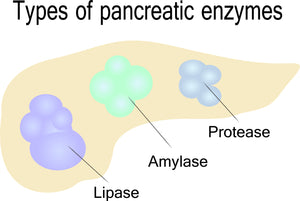

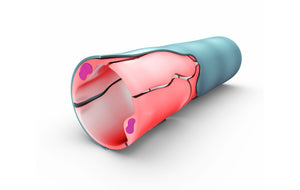
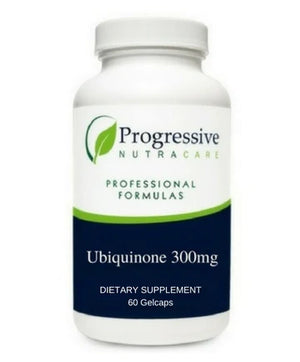

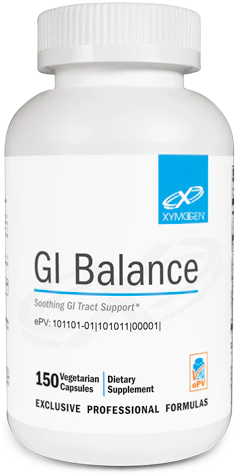
Comments 0